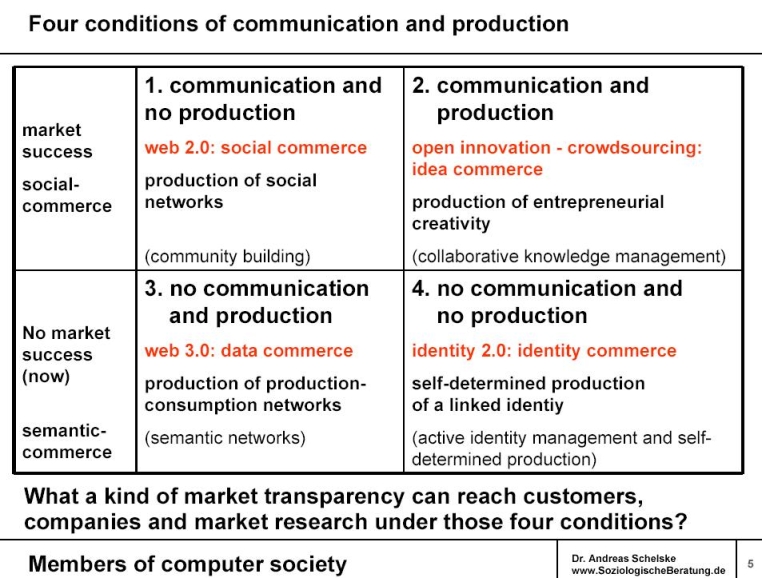Speach: 11.03.2008
10. Internationale GOR Konferenz
GENERAL ONLINE RESEARCH 08
10.-12. march 2008 |
 |
Interactive customer co-creation in transparent markets
Synchronized consumer research of networked consumers
Open innovation, open source, customer co-creation, social software,
prosuming, location based services, data mining, radio-frequency
identification (RFID), long tail, crowdsourcing as well as account card
and
3D printer belong to the key words which mark a transformation of the
consumer
goods industry and of the market and consumer research. These transformations
carry
two fundamental developments of the relation between producers and
customers.
The first transformation describes a collaboration for innovation within
networks of firms and external entities like customers, retailers and
suppliers. Collaboration for innovation integrates the customer into
a
firm's system of value creation. The customer, a so-called prosumer,
participates in the production process and produces the consumer goods
himself. "Open source", "open innovation" or “crowdsourcing"
have become
keywords to describe the production sphere of the prosumer. A prosumer
is
the active consumer of Web 2.0 in social commerce.
The second transformation is accompanied by global informationalisation
and data mining which carry a flood of information on the one hand and
force a high
degree of market transparency on the other. These transformations result
in a market
transparency that renders all value-adding activities of an organization
visible – from
raw material to the consumer. In particular, loyalty cards, radio-frequency
identification (RFID)
and location-based services provide an audit trail which provides consumer
research with
detailed information on consumer preferences.
Reflecting on these transformations, I find myself confronted with the
following questions:
Which may be future tasks of market and consumer research, if these
become less relevant in
their traditional field of consumer survey or questionnaire? Will market
and consumer research
lose part of their market knowledge if producers acquire information
by direct data link to market
customization? Or will consumers satisfy their needs as far as possible
within the structures of
prosuming and customer integration? This talk analyzes the social commerce
of Web 2.0 on the one
hand and considers the consequences for market and consumer research
on the other.

|
Abstract:

